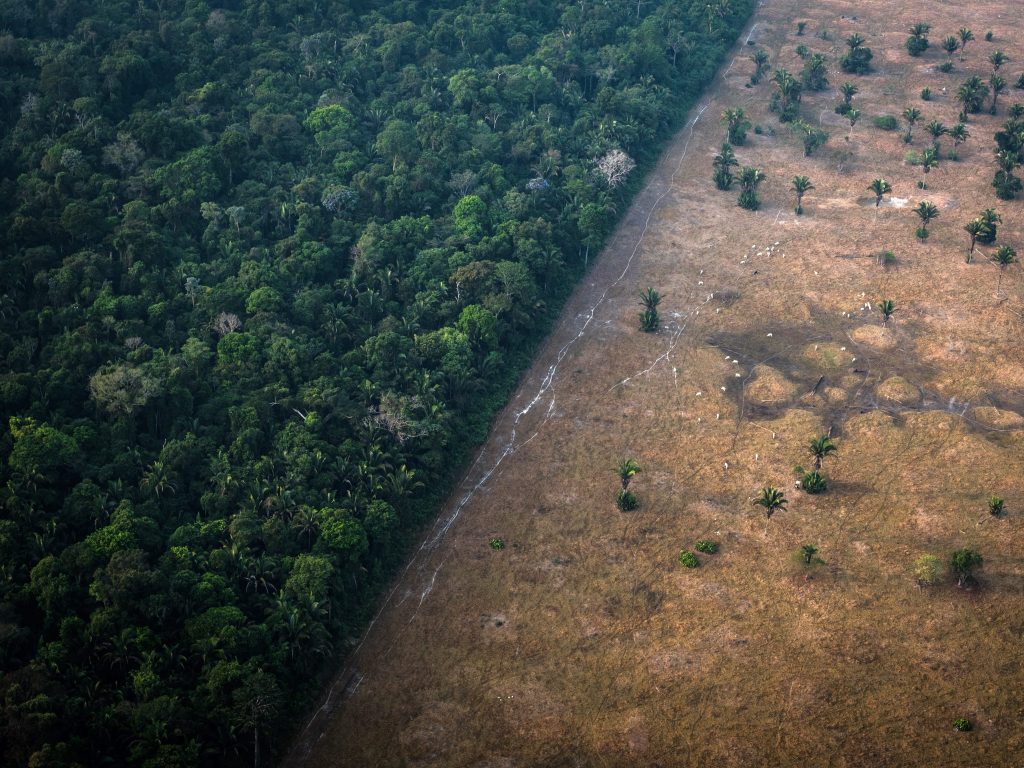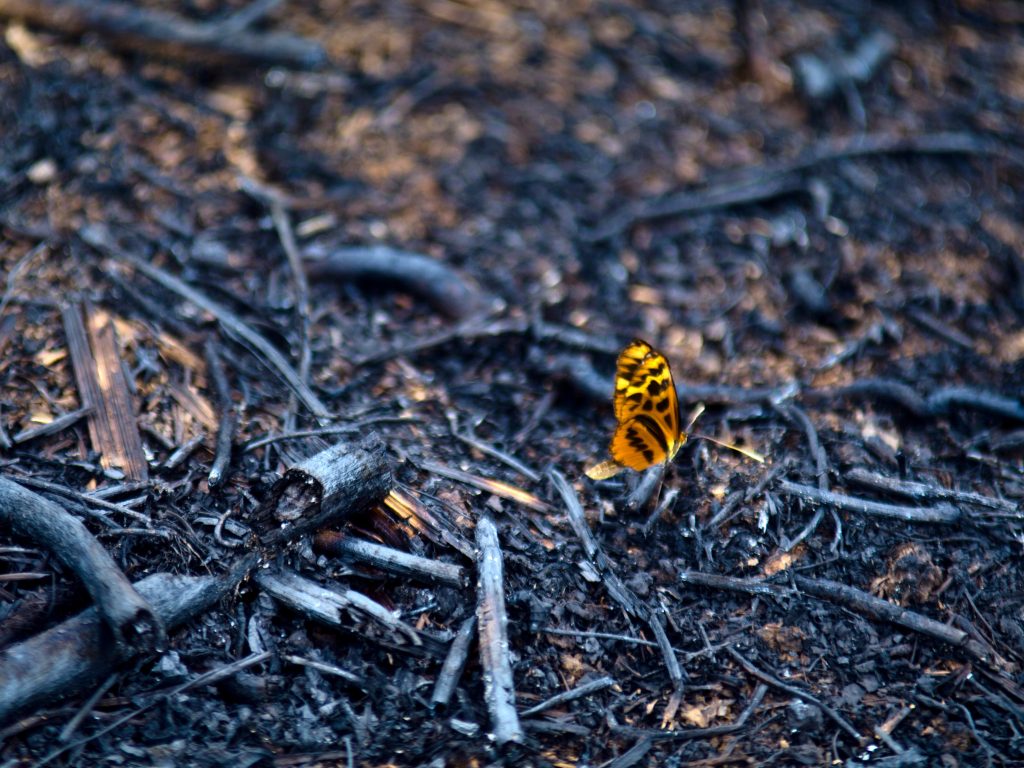- Researchers recorded thousands of hours of sounds in the Brazilian Amazon.
- In forests hit by repeated blazes, sounds were sparse — a clue that biodiversity is degrading.
- The findings add to growing research on how increasing fires and logging threaten the Amazon.
The Amazon is the world's largest rainforest, covering more than 2 million square miles. A slew of studies have captured how this hotspot for biodiversity has been threatened by escalating farming, logging, and wildfires. Now, researchers have gone beyond seeing those changes — they're also listening to them.
In a research article published last week in the Proceedings of the National Academy of Sciences, researchers from the University of Maryland recorded thousands of hours of sounds in 39 forests. The forest sites were recovering from either recent or decades-old fires, as well as from being cleared for logging and agriculture. The acoustics, which were combined with airborne satellite data, were recorded during September and October of 2016. The researchers found that in forests where blazes happened repeatedly, communication between animals was quieter than in forests that were logged or burned only once.
"Fire causes the community to completely change," Anshuman Swain, a University of Maryland ecologist and coauthor of the study, told Insider. Researchers tuned in to every grunt, chirp, and click uttered in the forest and captured in their recordings to see how the habitats had changed.
"When we walk outside in the morning in the spring, we hear the sounds and we're like, 'Oh, spring is here.' Sounds are a pretty good indicator of what species are around you, especially in rainforest, where there is huge diversity," Swain said.
Crudely, the more snippets of communication in the form of animal sounds mingled together in the recording, the greater the variety of animals species — thus, a more biodiverse environment. If the collective sounds from organisms in a given habitat are sparse, it's a clue that biodiversity is degrading. This kind of eavesdropping fieldwork is called acoustic monitoring. It's a relatively inexpensive way to assess an ecosystem's health, and could provide insights into biodiversity and how climate change is affecting it.
Or as Swain put it, it's "a low-cost indicator of how badly we have damaged the environment."
Creepy critters are under threat
The study adds to a firehose of recent research underscoring the toll of climate change — which intensifying deforestation contributes to — on the natural world. Last week, researchers reported in the journal Nature that the world's insect populations were in dramatic decline due to rising global temperatures and habitat loss. In some areas, overall insect populations dropped by nearly half.
That's a foreboding finding, considering Swain's team identified insects getting quieter as the main marker of biodiversity loss in the recent soundscape study. "They perform all these ecosystem services in an invisible way. So their going away is very bad for the forest in the larger scheme of things," Swain told Insider, adding that insects are "not usually covered in most general biodiversity surveys."
On Thursday, another sobering analysis, published by the World Resources Institute, found that the world is losing 10 soccer fields worth of tropical forest per minute, predominantly due to logging and fires. Of primary rainforest lost in 2021, meaning rainforest that is very old and relatively undisturbed by humans, 40% was in Brazil.
"We've got 20 years of data showing the persistent annual loss of millions of hectares of primary tropical forests alone," said Frances Seymour, a senior fellow at the World Resources Institute, according to The Guardian. "We already knew that such losses are a disaster for the climate. They're a disaster for biodiversity. They're a disaster for Indigenous peoples and local communities."
"We have to dramatically reduce emissions from all sources. No one should even think any more about planting trees instead of reducing emissions from fossil fuels. It's got to be both and it's got to be now before it's too late," Seymour added.

